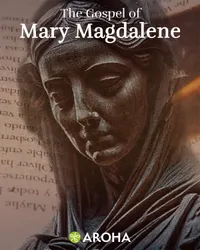The Book of Ayub, revered in Judeo-Christian traditions as Job, stands as a profound exploration of suffering, faith, and the human condition. Written in a poetic literary style, this ancient text employs rich imagery and dialogue to convey the trials of its protagonist, Ayub, whose piety is put to the ultimate test through enduring afflictions and existential questions. The book's setting within the wisdom literature of the Hebrew Bible situates it amid broader themes of divine justice and human righteousness, as it intricately weaves philosophical discourses with poignant emotional depth. The author of this ancient work remains anonymous, yet the narrative reflects a deep engagement with the theological and existential dilemmas of its time. Likely composed during the Babylonian Exile, the work resonates with a historical context of suffering and loss, perhaps mirroring the experiences of a community grappling with divine silence in the face of pervasive anguish. This personal and communal suffering informs the book's exploration of faith under duress, evoking both empathy and introspection. I highly recommend The Book of Ayub to readers interested in the exploration of human suffering and resilience. Its timeless themes and deep philosophical inquiries resonate today, inviting reflections on the nature of faith and the complexities of life. This text serves not only as a literary masterpiece but also as a catalyst for profound existential contemplation.
The Book of Ayub, known in the west as Job
Starte deine 14-tägige kostenlose Probezeit
- Voller Zugriff auf Hunderttausende von Hörbüchern und E-Books in unserer Bibliothek
- Erstelle bis zu 4 Profile – inkl. Kinderprofile
- Lies und höre offline
- Abos ab € 9,99 pro Monat

The Book of Ayub, known in the west as Job
The Book of Ayub, revered in Judeo-Christian traditions as Job, stands as a profound exploration of suffering, faith, and the human condition. Written in a poetic literary style, this ancient text employs rich imagery and dialogue to convey the trials of its protagonist, Ayub, whose piety is put to the ultimate test through enduring afflictions and existential questions. The book's setting within the wisdom literature of the Hebrew Bible situates it amid broader themes of divine justice and human righteousness, as it intricately weaves philosophical discourses with poignant emotional depth. The author of this ancient work remains anonymous, yet the narrative reflects a deep engagement with the theological and existential dilemmas of its time. Likely composed during the Babylonian Exile, the work resonates with a historical context of suffering and loss, perhaps mirroring the experiences of a community grappling with divine silence in the face of pervasive anguish. This personal and communal suffering informs the book's exploration of faith under duress, evoking both empathy and introspection. I highly recommend The Book of Ayub to readers interested in the exploration of human suffering and resilience. Its timeless themes and deep philosophical inquiries resonate today, inviting reflections on the nature of faith and the complexities of life. This text serves not only as a literary masterpiece but also as a catalyst for profound existential contemplation.

Aphrodite in Bloom
Anonymous
audiobook
The Little Red Book: The Original 1946 Edition :
Anonymous
audiobook
Pipsa Possu - Kiinalainen uusivuosi
Anonymous
audiobook
Ryhmä Hau - Luolan uumenissa
Anonymous
audiobook
Ryhmä Hau - Pennut pelastavat pingviinit
Anonymous
audiobook
Pipsa Possu - Dinosaurusjuhlat
Anonymous
audiobook
Wreck of the "London"
Anonymous
book
The story of Flamenca : The first modern novel, arranged from the Provençal original of the Thirteenth Century by William Aspenwall Bradley
Anonymous
book
Cross of Caravaca
Anonymous
book
pyramids texts
Anonymous
book
The Gospel of Mary Magdalene
Anonymous
book
Pralle Eier – feuchtes Nest : 25 prickelnde Kurzgeschichten
Bernadette Binkowski, Anonymous
book